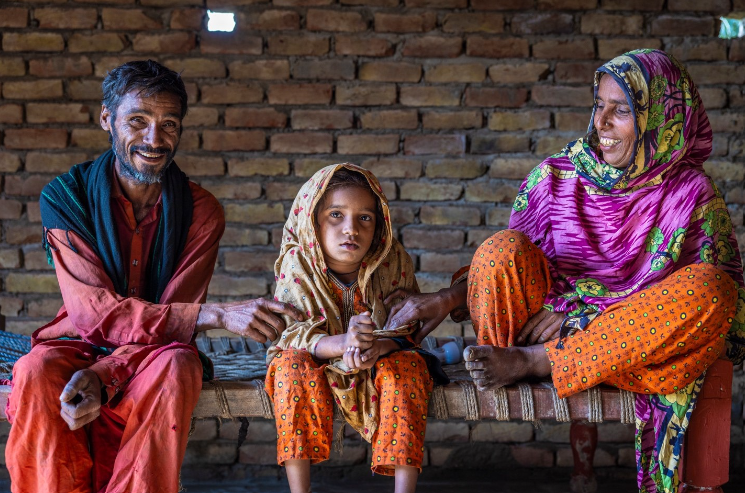Pakka House: A New Start for the Mustafa Family
In mid-2022, the usual seasonal monsoon rains came to southern Pakistan. Unlike past years, this time they refused to stop. With 500% more water than average pouring down, the entire landscape across Pakistan’s Sindh province became drenched. Rivers rapidly rose, spilling over their banks and sending floodwaters crashing into communities.
Entire towns and villages were flooded with 33 million people impacted, 8 million displaced and more than 1,700 people killed. For those who survived the initial flooding, the aftermath was devastating. People couldn’t access clean water, food, or safe housing.
The international relief community, including CORE, responded by providing immediate support through food and hygiene kits and ensuring residents had access to vital food and water.
But even as those pressing needs were met, that relief often served as a bandage over a larger systemic wound that remained unaddressed. Countless people were still without homes, and as the flood waters remained high, many lost precious livestock and other steady income sources.
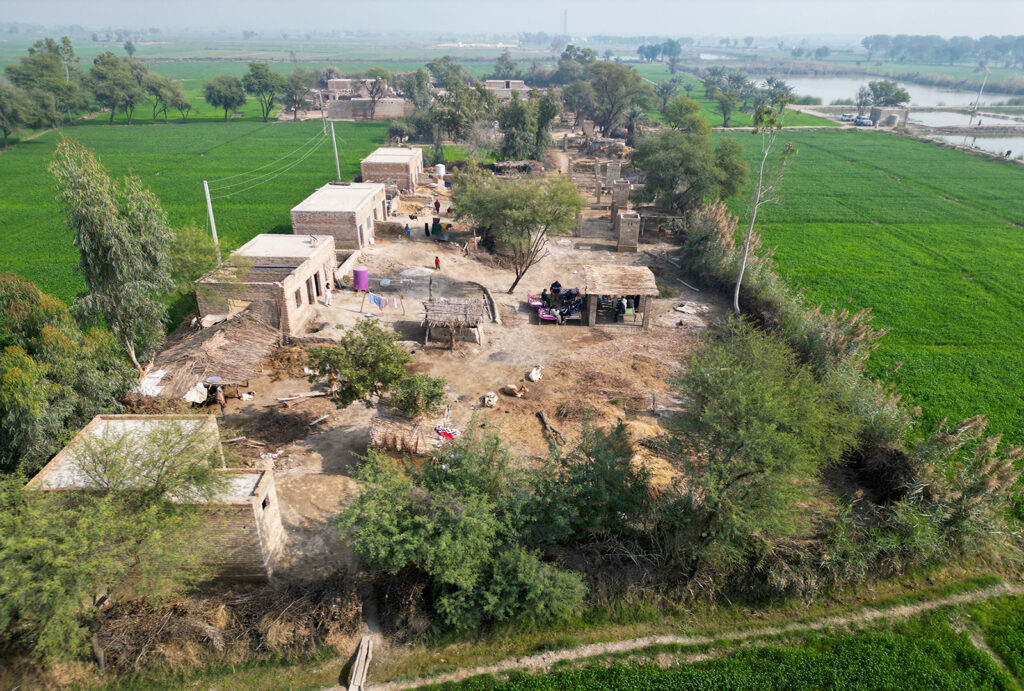
An aerial view of Goth Hasham Chohan nearly two years after historic floods submerged much of the area
A Family’s Story of Perserverance
One of those affected was 35-year-old Ghulam Mustafa, who lived in the village of Goth Hasham Chohan. He, his wife, and their 6-year-old daughter lost everything in the flooding, including their home and livestock.
They were subject to the continued monsoon rains with no roof over their heads. Things, to put it mildly, were miserable. The rain continuously soaked the family for the next three or so months. Even with food kits provided, they had little more than bread to eat on some days.
No matter the assistance they’d received, it was still a far cry from what they once had. Eventually, Ghulam and his family began to rebuild their house on their own using the only material they had, mud.
Unfortunately, while the mud would work in the short term to protect the family from the elements, it would do little to protect them from further flooding, leaving them back where they had started.
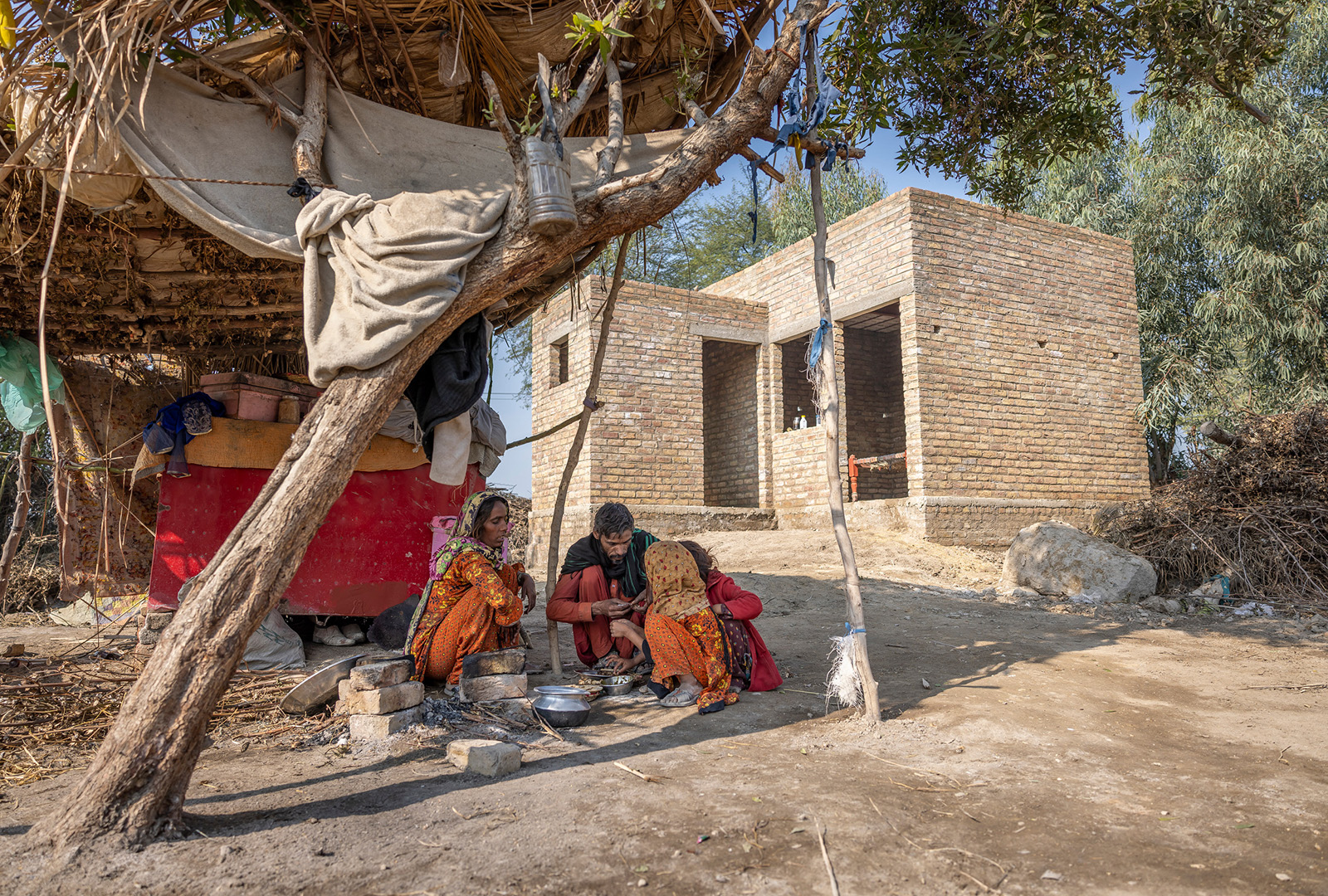
The Mustafa family cooks food together outside of their newly built home
But, before Ghulam got halfway finished, CORE reconnected with him. Through local partner Riverside Development Organization (RDO), CORE built his family a brick house, often referred to locally as a pakka house (a sturdy structure), including a kitchen space and detached bathroom. With this new house with its strong walls and solid roof, the family could finally get out of the rain and begin to rebuild the life they had lost.
After CORE finished the work on his home, Ghulam said, “Let the flood come or rainfall; now our work is strong, now we care least about it. Earlier we were disturbed about where to go, but now we don’t need to go anywhere else. Now, we will ask Allah to send flood and rainfall. Now we have got a pakka house.”
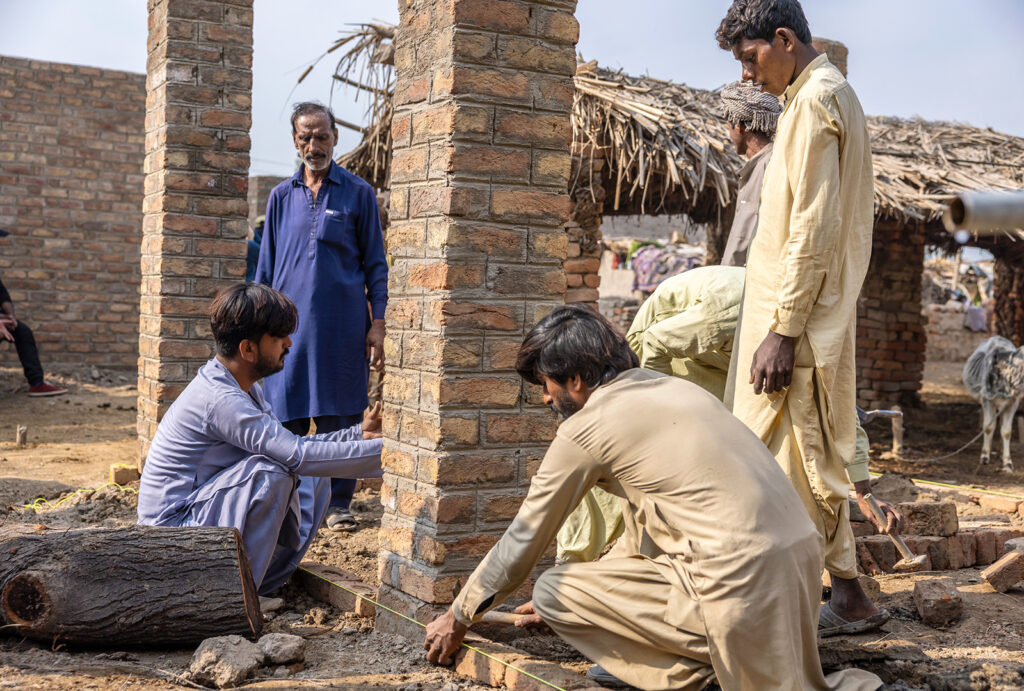
Community members work together on building structures to help shelter their animals
CORE Looking Ahead at Climate Change
CORE recognizes the impact of climate change, which will only increase the frequency of natural disasters, particularly flooding, and understands the importance of helping residents prepare.
To facilitate this, CORE, through its local partner, RDO, has implemented several preventative measures, including raising the foundations of homes in the village and building a bund wall around the community’s perimeter to help keep future flood waters at bay. CORE has also placed critical strategic egresses that will drain any water that makes its way into the village.
Between Goth Hasham Chohan and Dodha, CORE repaired 28 houses and built 23 sturdy stone homes for 51 families, providing these two communities with peace of mind for the future. Climate change will worsen these problems, but that is no excuse to allow communities to suffer.
CORE will continue working globally to respond to crises as they happen and empower communities to safeguard themselves from future climate-related disasters.
